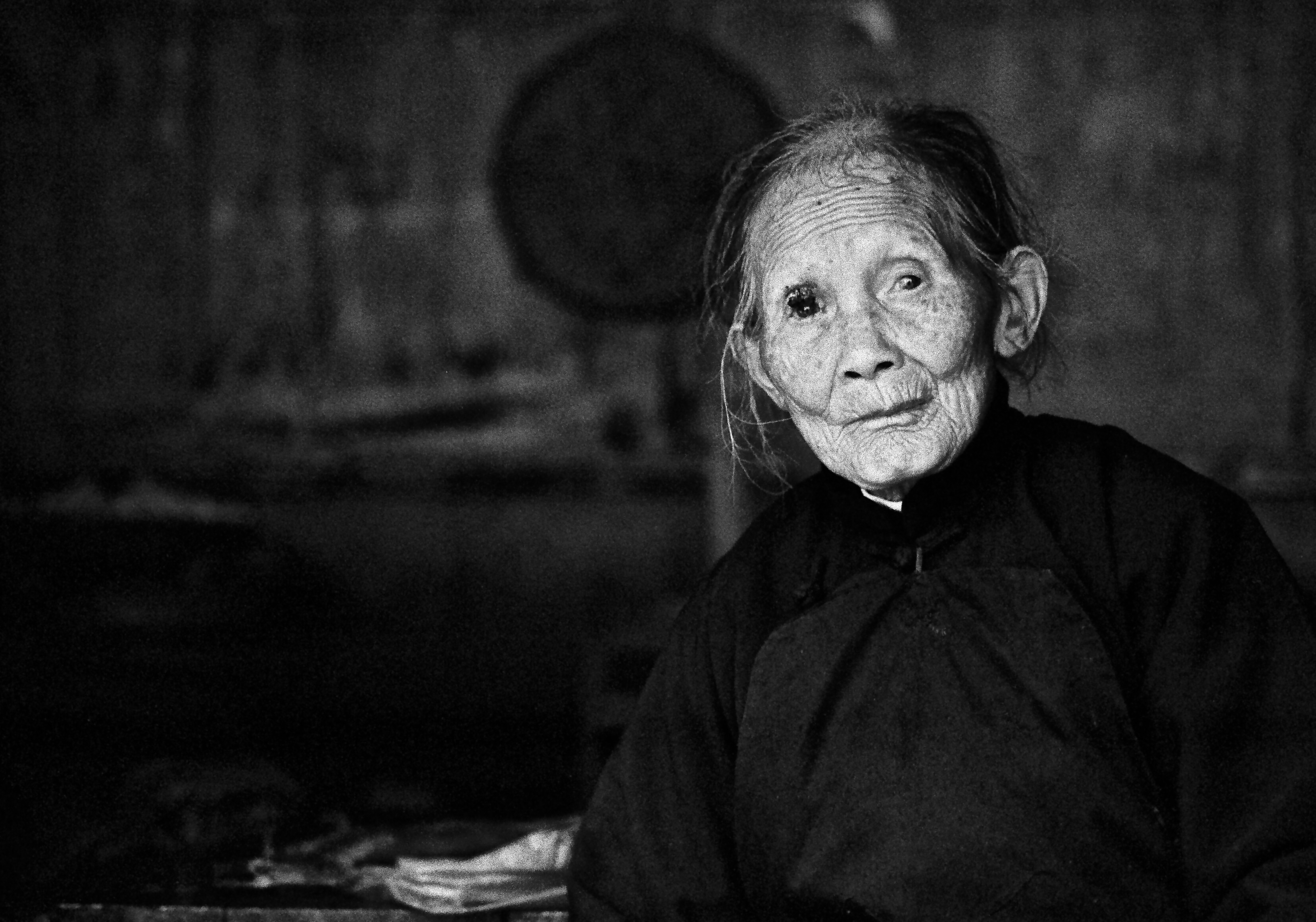Within the tidy remnants of a former ‘Tea and Horse Trade Office’ in Mingshan County, near Ya’an in Sichuan, Jamyan and I wandered for 25 bizarre and wondrous minutes. As we made our way in to the horse dung and incense-tainted world, it was as though everything briefly became another world. It was here to this ‘office’ that horses that came from Tibet would be brought, traded (and taxed), bought and sold. This office was despised in the past as tax offices are despised everywhere but played host to thousands of horses a year in its time.

Now it played host to three ancient women who showed up daily to sweep the floors, play mahjong, and chat over tea. When we arrived we were told to pay an admittance fee, though it seemed that it was up to us whether we did or didn’t. We did and walked ourselves through the damp and dark spaces that had seen so much life of the Tea Horse Road. This portrait was taken just as we left, and as much as I didn’t want to disturb the three elders, I couldn’t help but ask. The whole place felt lonely and forgotten and so did the ladies. I expected a rejection from her when I asked, but she just nodded and that was it. As we left the decaying little remnant of trade from another time, one of the ladies said “Thanks for coming”.

About JeffFuchs
Bio
Having lived for most of the past decade in Asia, Fuchs’ work has centered on indigenous mountain cultures, oral histories with an obsessive interest in tea. His photos and stories have appeared on three continents in award-winning publications Kyoto Journal, TRVL, and Outpost Magazine, as well as The Spanish Expedition Society, The Earth, Silkroad Foundation, The China Post Newspaper, The Toronto Star, The South China Morning Post and Traveler amongst others. Various pieces of his work are part of private collections in Europe, North America and Asia and he serves as the Asian Editor at Large for Canada’s award-winning Outpost magazine.
Fuchs is the Wild China Explorer of the Year for 2011 for sustainable exploration of the Himalayan Trade Routes. He recently completed a month long expedition a previously undocumented ancient nomadic salt route at 4,000 metres becoming the first westerner to travel the Tsa’lam ‘salt road’ through Qinghai.
Fuchs has written on indigenous perspectives for UNESCO, and has having consulted for National Geographic. Fuchs is a member of the fabled Explorers Club, which supports sustainable exploration and research.
Jeff has worked with schools and universities, giving talks on both the importance of oral traditions, tea and mountain cultures. He has spoken to the prestigious Spanish Geographic Society in Madrid on culture and trade through the Himalayas and his sold out talk at the Museum of Nature in Canada focused on the enduring importance of oral narratives and the Himalayan trade routes.
His recently released book ‘The Ancient Tea Horse Road’ (Penguin-Viking Publishers) details his 8-month groundbreaking journey traveling and chronicling one of the world’s great trade routes, The Tea Horse Road. Fuchs is the first westerner to have completed the entire route stretching almost six thousand kilometers through the Himalayas a dozen cultures.
He makes his home in ‘Shangrila’, northwestern Yunnan upon the eastern extension of the Himalayan range where tea and mountains abound; and where he leads expeditions the award winning ‘Tea Horse Road Journey’ with Wild China along portions of the Ancient Tea Horse Road.
To keep fueled up for life Fuchs co-founded JalamTeas which keeps him deep in the green while high in the hills.

